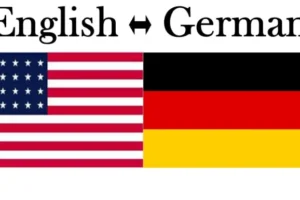
Common errors German learners make
Heißen
When you get to the bar, you order a fizzy beverage and look about the space. Once your target is in sight, you conjure up the bravery to approach a German who seems nice. You mentally recite your introduction dialogue as you draw nearer.
You smile broadly as you say “Hallo!” to the German who seems nice. He responds with the same degree of excitement, “Hey.” Everything is going great so you decide to ask the crucial question. What is your name? you scream above the music. Your new friend’s courteous greeting is “Ich heiße Jörg, how do you spell that?”
Our first error is right here. What’s up with the word “heißen”?
In German, you ask someone what they like to be called rather than their name. English speakers might find it difficult to understand this, but perhaps a reference to French or Spanish might be beneficial. Both the expressions “comment tu t’appelles?” and “cómo te llamas?” ask the question, “What do you name yourself?”
Being asked one’s name seems rather formal and even outdated to a German speaker. Wie ist Ihr Name? may occasionally be heard in very specific situations (at the Amt, for example), but even this can make a German speaker grimace.
Mögen vs gefallen
After getting over your first small slip-up, you continue the conversation confidently, if a little shaken. You decide to switch the subject to something more upbeat, like likes and hobbies, after discussing your shared dislike of the recent cold temperatures.
“Can you attend this party?”, you inquire, trying to figure out if he’s just here for the free drinks or if he’s truly having fun. Jörg nods in agreement, tapping his foot to the music, “Ja, diese Bar gefällt mir.”
Did you note how the verb choice differed? Why did Jörg not say, “Ich mag?”
It’s okay; this is a relatively typical error. English speakers simply “like” everything to the point that it is unclear whether they actually do. The overuse of “mögen” can have the same impact on most German speakers. You can use the word “mögen” to describe something or someone you adore. Ich mag dich! is a nice phrase to keep in mind. The best option for anything else is to use “gefallen.” Again, there are Spanish comparisons that may be made because “mir gefällt diese Musik” and “me gusta la msica” are nearly identical in meaning. The “like” button on your phone will change to “gefällt mir” if you switch the language.
You may also like

Basic level A1

Intermediate Level – B1

